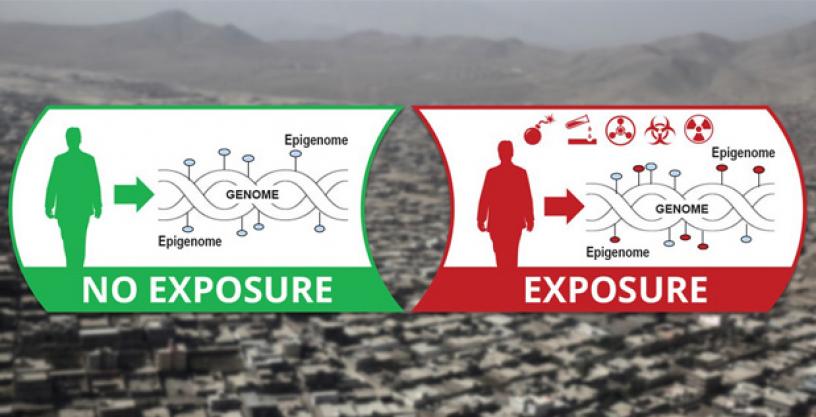
Summary
The Epigenetic CHaracterization and Observation (ECHO) program aims to diminish the threat posed by weapons of mass destruction (WMD).
To do this, the program is building a man-portable device that analyzes an individual’s epigenetic “fingerprint” to potentially reveal a detailed history of that individual’s exposure to WMD or their precursors. DARPA envisions that the same technology could provide rapid diagnostics for troops who may have been exposed to threat agents or who may be suffering from infections, providing a timely signal to apply effective medical countermeasures.
ECHO technology would work by quickly reading an individual’s epigenome — a part of human biology that helps our body respond to the constantly changing world around us — and identifying the epigenetic signatures indicative of WMD, precursor, or infectious disease exposure.
Though a person’s underlying genetic code is stable, life events can leave discernible marks on the genome that modify how genes are expressed. The epigenome is the combination of all such natural modifications, and while epigenetic modifications can register within seconds to minutes, they can potentially imprint the genome for decades, leaving a unique, time-stamped biography of an individual’s exposures.
The ECHO system would read someone’s epigenome from a biological sample such as a finger prick or nasal swab, and conduct analysis to reveal possible exposure events even when other physical evidence has been erased.
ECHO technology would offer an enormous advantage over state-of-the-art forensic and diagnostic screening technologies as it will identify the type of exposure and when it occurred — all without the need for trace amounts of the threat in the sample.
Program performers will develop new approaches to identifying and characterizing epigenetic signatures from WMD, precursor, or infectious disease exposure events, and create new bioinformatics tools to perform forensic analyses with high sensitivity, specificity, and temporal resolution. They will have to create a device capable of performing multiple molecular analyses and onboard bioinformatics in 30 minutes or less, compared to an average of two days using current laboratory processes.
By the end of the program, DARPA’s plans to demonstrate ECHO capabilities in a man-portable device that could be used by an operator in austere settings with only minimal training.
This program is now complete
This content is available for reference purposes. This page is no longer maintained.
